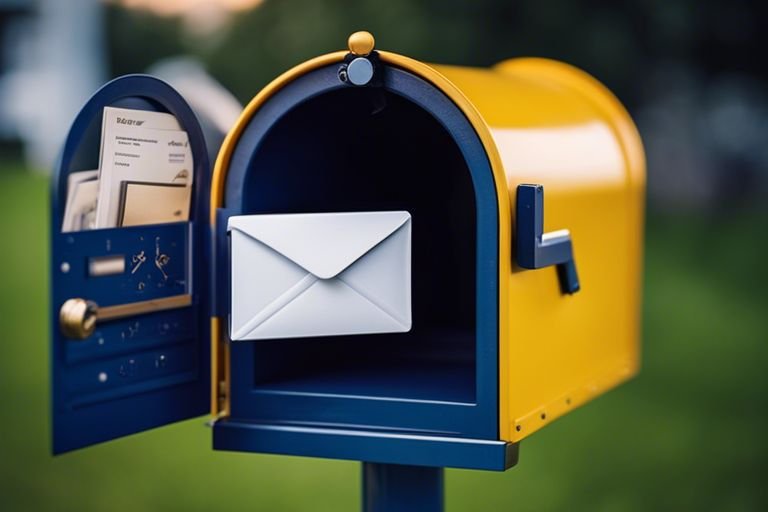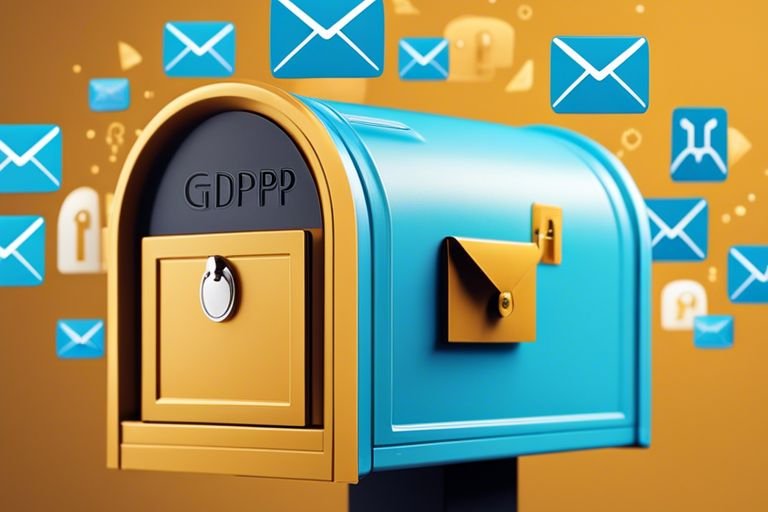Email Marketing is a powerful tool for reaching and engaging your target audience. However, with the implementation of GDPR, it is crucial for businesses to prioritize data protection and privacy in their email marketing practices. Failure to comply with GDPR regulations can lead to hefty fines and damage to your brand’s reputation. To navigate this landscape successfully, it is vital to understand the key requirements of GDPR, such as obtaining clear consent from subscribers, providing transparent opt-in processes, and ensuring the security of personal data. In this guide, we will walk you through the steps to ensure GDPR compliance in your email marketing strategy, safeguarding both your business and your subscribers.

Key Takeaways:
- Understand GDPR Regulations: Familiarize yourself with the General Data Protection Regulation (GDPR) to ensure compliance with email marketing practices.
- Obtain Explicit Consent: Collect consent from individuals before sending marketing emails to comply with GDPR regulations.
- Provide Opt-Out Options: Include clear instructions on how recipients can unsubscribe from your email list to comply with GDPR regulations.
- Secure Data Handling: Implement security measures to protect personal data collected for email marketing purposes to comply with GDPR regulations.
- Maintain Compliance Documentation: Keep detailed records of consent, opt-outs, and data processing activities to demonstrate compliance with GDPR regulations.


Foundations of GDPR Compliance
Key Principles of GDPR for Email Marketers
There’s no denying the importance of understanding the key principles of GDPR for email marketers. An vital part of compliance is obtaining clear consent from individuals before sending them marketing emails. Transparency, accountability, and data minimization are also core principles that email marketers must adhere to in order to comply with GDPR regulations.
Personal Data Identifiers and Email Marketing
Email marketers must be aware of the personal data identifiers within their email marketing campaigns to ensure GDPR compliance. Email addresses, names, IP addresses, and location data are all examples of personal data that need to be handled with care. Failure to protect this information can lead to hefty fines and damage to your brand’s reputation.

GDPR Compliance Checklist for Email Marketing
Obtaining and Documenting Consent
Now, ensuring that you have obtained valid consent from individuals before sending them marketing emails is crucial for GDPR compliance. This means making sure that your subscribers have given clear, specific, and affirmative consent to receive your communications. Keep detailed records of when and how consent was obtained as documentation is crucial to prove compliance.
Data Protection and Security Measures
An effective data protection plan is an crucial component of GDPR compliance. Implement strong encryption methods, regular security audits, and access controls to safeguard the personal data collected through your email marketing efforts. Additionally, ensuring that your staff is well-trained in data protection protocols is key to mitigating risks and demonstrating your commitment to protecting your subscribers’ personal information.
How-To Implement GDPR-Compliant Strategies
For Email Marketing Under GDPR: Impact & Best Practices, it is crucial to follow GDPR guidelines to ensure your email marketing strategy is compliant. To craft
Tips for Crafting GDPR-Compliant Emails
, ensure that your email content clearly explains why the recipient is receiving the email and provides an easy way to unsubscribe. Use clear and explicit language, obtain consent before sending any emails, and regularly review and update your email lists to ensure compliance. Thou must avoid purchasing email lists or sending emails to contacts who have not opted in.
Implement
Factors to Consider in Email List Management
to maintain GDPR compliance. When managing email lists, always obtain explicit consent from subscribers and regularly update and clean your lists to remove inactive or non-consenting users. This will help you avoid penalties and maintain a positive reputation with your audience. This approach ensures that your email marketing efforts are in line with GDPR regulations.
Maintaining Compliance and Monitoring Performance
Regularly Reviewing and Updating Compliance Practices
With the ever-evolving landscape of data protection regulations, it is crucial for businesses to stay vigilant in reviewing and updating their compliance practices regularly. This includes staying informed about any changes to the GDPR guidelines, conducting internal audits of data handling processes, and ensuring that all employees are properly trained on data protection protocols.
Using Analytics to Ensure Ongoing GDPR Adherence
While compliance practices are necessary, using analytics can provide valuable insights into the performance of your email marketing campaigns in relation to GDPR adherence. By tracking metrics such as opt-in rates, open rates, click-through rates, and unsubscribe rates, businesses can identify any potential areas of non-compliance and take corrective actions promptly.
Reviewing analytics regularly also allows businesses to identify trends and patterns in customer behavior that may impact GDPR compliance. By monitoring these metrics closely, businesses can proactively adjust their email marketing strategies to ensure ongoing adherence to data privacy regulations.
Final Words
Drawing together all the strategies and steps discussed above is necessary to ensure GDPR compliance in your email marketing strategy. By focusing on obtaining explicit consent from your subscribers, providing easily accessible opt-out options, securing the data you collect, and regularly reviewing and updating your processes, you can build a strong foundation for compliance. Do not forget, GDPR is not just a legal requirement but also a way to build trust with your audience and protect their privacy. By following these best practices, you can navigate the complexities of GDPR and create a successful and compliant email marketing strategy for your business.
FAQ
Q: What is GDPR compliance in email marketing?
A: GDPR compliance in email marketing refers to ensuring that your email marketing practices align with the General Data Protection Regulation (GDPR), a set of regulations designed to protect the privacy and personal data of individuals within the European Union (EU).
Q: Why is GDPR compliance important in email marketing?
A: GDPR compliance is important in email marketing to protect the privacy of your subscribers’ personal data, maintain trust with your audience, and avoid potential fines or penalties for non-compliance.
Q: How can I ensure GDPR compliance in my email marketing strategy?
A: To ensure GDPR compliance in your email marketing strategy, you should obtain explicit consent from subscribers before sending them marketing emails, provide easily accessible options for opting out, secure and protect data, and manage and store data in compliance with GDPR guidelines.
Q: What are some best practices for GDPR compliance in email marketing?
A: Some best practices for GDPR compliance in email marketing include regularly auditing your email lists to remove inactive or non-compliant subscribers, documenting consent for data processing, encrypting sensitive data, and providing clear privacy policies.
Q: What are the consequences of non-compliance with GDPR in email marketing?
A: Non-compliance with GDPR in email marketing can result in significant fines of up to €20 million or 4% of your annual global turnover, damage to your brand’s reputation, loss of customer trust, and legal actions against your organization.

